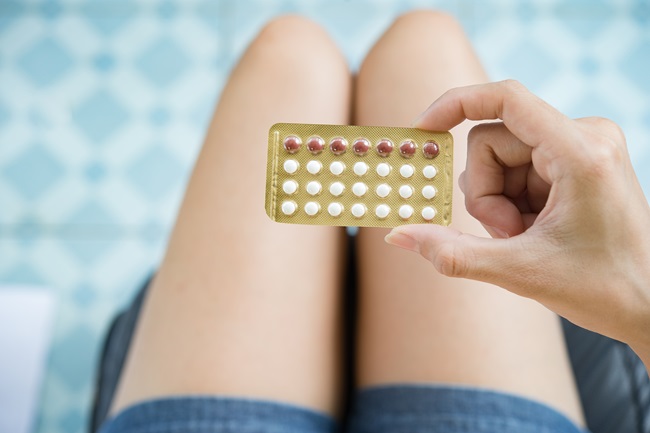
After stopping birth control, many women wonder how soon they can expect to conceive and whether birth control will impact their fertility. Understanding the relationship between birth control and fertility can help you make informed decisions as you plan for your future. In this article, we will answer one of the most frequently asked questions: Does birth control affect fertility? Along with that, we’ll explore the process of fertility recovery, tips for boosting fertility, and the best practices for post-birth control care.
Introduction: Understanding Fertility and Birth Control
When you decide to stop using birth control, your body may take some time to adjust, but the good news is that, for most women, fertility returns quickly. Birth control methods, including hormonal options like the pill, patch, and IUD, temporarily stop ovulation. However, once you discontinue them, your body’s natural cycle generally resumes.
But what about the question on everyone’s mind: Does birth control affect fertility? Let’s dive deeper into this topic and clarify how birth control can impact your fertility.
How Birth Control Affects Your Fertility
1. Hormonal Birth Control and Fertility
Hormonal birth control methods (the pill, patch, ring, injection, and hormonal IUD) prevent pregnancy by releasing synthetic hormones to control your menstrual cycle and prevent ovulation. These hormones can sometimes delay the return of normal ovulation after stopping birth control, but for most women, fertility is restored within a few months.
-
The Pill: After stopping the pill, most women experience a return to regular ovulation within a few weeks to a few months.
-
The IUD: For women using hormonal IUDs, fertility typically returns quickly once the device is removed, although there may be some minor delays.
-
The Injection: Birth control injections (like Depo-Provera) can take a bit longer to wear off. It may take up to 10 months for ovulation to resume fully.
2. Non-Hormonal Birth Control and Fertility
Non-hormonal methods, such as copper IUDs and barrier methods (like condoms and diaphragms), do not interfere with hormonal cycles, so fertility typically returns as soon as these methods are discontinued.
How Quickly Can Fertility Return After Birth Control?
For most women, fertility resumes quite quickly after stopping hormonal birth control. The time it takes to get pregnant can vary depending on various factors, including age, overall health, and how long you’ve been using birth control.
-
For Most Women: Ovulation generally returns within a few weeks after stopping hormonal birth control. It’s not unusual for women to get pregnant within the first year after stopping birth control.
-
Age Factor: Women over 35 may experience a longer time to conceive, as fertility naturally declines with age.
-
The Type of Birth Control: Women who have used the birth control injection may experience a delay of several months before ovulation resumes.
Does Birth Control Affect Fertility? In general, hormonal birth control does not have long-term effects on fertility. Once the hormones leave your system, your body typically returns to normal fertility patterns.
Tips for Faster Fertility Recovery After Stopping Birth Control
While most women can conceive soon after stopping birth control, there are several things you can do to enhance your fertility and speed up the process:
1. Maintain a Healthy Lifestyle
-
Eat a Balanced Diet: A nutrient-rich diet filled with vegetables, fruits, lean proteins, and whole grains supports overall reproductive health.
-
Exercise Regularly: Maintaining a healthy weight through regular exercise can improve your chances of conceiving, as obesity or being underweight can interfere with ovulation.
-
Avoid Smoking and Alcohol: These substances can negatively affect fertility and should be avoided when you’re trying to conceive.
2. Track Your Ovulation
Understanding when you’re ovulating can significantly increase your chances of pregnancy. You can track ovulation using several methods, such as:
-
Ovulation Predictor Kits (OPKs): These kits detect the surge in luteinizing hormone (LH) that occurs right before ovulation.
-
Basal Body Temperature (BBT) Charting: Recording your temperature each morning can help you track your cycle and pinpoint ovulation.
3. Consult with a Healthcare Provider
If you’ve been off birth control for several months and haven’t conceived, it may be helpful to consult with a doctor or fertility specialist. They can assess your reproductive health and provide guidance based on your individual situation.
Post-Birth Control Care: What to Expect
After stopping birth control, some women experience temporary changes in their cycle as the body adjusts. Here’s what to expect:
1. Menstrual Irregularities
It’s common to experience irregular periods for a few months after stopping birth control. Some women may have heavier or lighter periods than usual, while others may experience spotting or missed periods. This is typically temporary and should resolve within a few cycles.
2. Hormonal Fluctuations
For women who have used hormonal birth control for a long period, the body may take time to readjust to its natural hormonal rhythms. You might experience symptoms like acne, mood swings, or changes in libido during this period. If symptoms persist, a healthcare provider can offer guidance.
3. Return to Normal Fertility
As mentioned, most women will see the return of regular ovulation and fertility within a few months. However, it’s important to be patient, as every woman’s body reacts differently to stopping birth control.
Conclusion: Fast Fertility Recovery After Birth Control
In summary, for most women, fertility returns quickly after stopping birth control, with ovulation typically resuming within a few weeks to months. While hormonal birth control temporarily suppresses fertility, it does not have a long-term impact on your ability to conceive. If you’re asking, Does birth control affect fertility? The answer is no—it generally does not, and any delays in fertility recovery are temporary.
By maintaining a healthy lifestyle, tracking ovulation, and consulting with your healthcare provider when necessary, you can optimize your chances of conceiving quickly. Whether you’re planning to get pregnant right away or in the future, understanding the fertility recovery process can help you feel more in control of your reproductive health.